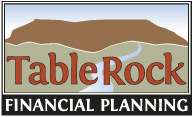Financial Planning Blog
 What to Do If Your 401K is Less Than Stellar (Part 4)
What to Do If Your 401K is Less Than Stellar (Part 4)
Maybe you're beginning to suspect the 401K plan your employer provides is not quite up to par. Some of the telltale signs of an inferior plan are:
- There are no low cost index funds available in the plan.
- The mutual funds all have expense ratios of over 1.5%.
- There are front end loads on the mutual funds in the plan. (Remember, friends don't let friends buy mutual funds with loads.)
- The Plan is administered by an insurance company.
- The investment advisor is the company owner's hunting or golfing buddy.
Here are some ideas to consider if you are trying to make the best of a bad 401K situation.
- Contribute enough to maximize the employer match. Even if it is a bad plan, an immediate match of 100%, or even 50%, is tough to give up. Yes, maybe much of this will be lost due to high fees, but the match gives you a great head start.
- After contributing enough to get the company match, use a Roth IRA for the first $5,000 ($6,000 if over 50) of your savings. Especially if you are young, there is a strong argument for using a Roth IRA over a 401K--even if the 401K is decent. The long term tax benefits of the Roth may well outstrip that of the 401K, and you will generally have more flexibility in how you invest your Roth IRA. The fact that your contributions to the Roth are accessible without tax implications is a major benefit, especially for those with only a minimal cash reserves. (If you are fortunate enough to make over the Roth income limit, you may be able to do a non-deductible traditional IRA, and then immediately convert it to a Roth--the "back-door Roth".)
- If you want the tax deduction and you meet eligibility requirements, use a traditional IRA for the first $5K of your savings ($6K if over 50).
- While you are making your Roth IRA or traditional IRA contributions mentioned in the previous points, don't forget that your spouse may also be able to make similar IRA contributions--even if he or she doesn't have a paying job. (More on spousal IRAs.)
- If your spouse's 401K plan is better than yours, use it to the maximum extent. For example, instead of both of you contributing $8K per year into your plans, have your spouse contribute $16K. (The 401K contribution limit for 2010 is $16.5K for those under 50, and $22K for those over 50.)
- If your plan has index funds, use them instead of other high cost funds. However, this can be painful if the index funds are also high cost (e.g. >0.5% expense ratios).
- Coordinate your investment with your spouse's 401K, or your other investment accounts. For example, maybe you have a decent stable value fund, or other fixed income alternatives, and your spouse's plans have better stock funds. Overload your 401K plan with the fixed income funds, and your spouse's with stock funds, making sure the combination of the two add up to your targeted stock/bond allocation.
- If your 401K has a brokerage window, you can use it to bypass the plan's investment options. However, be careful that you understand and manage the fees and transaction costs associated with the brokerage window.
- Finally, talk to your employer about improving your company plan. Sometimes employers, especially small business owners, need to be educated regarding 401Ks. Your employer may be very receptive to improving this critical employee benefit.
If you are a small business owner, you are encouraged to take a close look at the 401K plan you have established for your company. Is it the best you can do for your employees? Considering that you are likely the biggest contributor to the plan, it is also in your best interest to make sure you have a well constructed, cost-effective plan. Contact a fee-only advisor, like Table Rock Financial Planning, to make an independent assessment of your current plan. Alternatively, contact a low cost, 401K provider such as Employee Fiduciary, the Online 401(k), or Pension Systems Corporation (401keasy.com).
Next page: Disclosures



